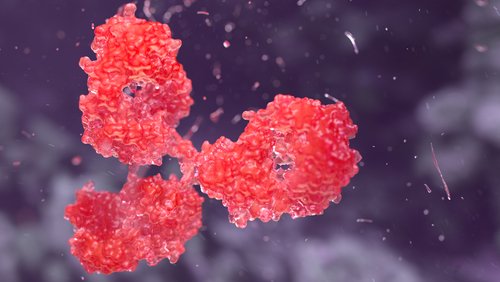New Antibody Armanezumab May Be Possible Therapeutic Strategy for ALS

Researchers have developed an antibody, called armanezumab, which specifically targets defective tau protein. The molecule has potential for the treatment of amyotrophic lateral sclerosis (ALS), among other diseases.
According to results of the study “Humanized monoclonal antibody armanezumab specific to N-terminus of pathological tau: characterization and therapeutic potency,” published in Molecular Neurodegeneration, this antibody has the therapeutic potential to treat several neurodegenerative disorders that are characterized by tau protein dysfunction (tauopathies).
Among these diseases are Alzheimer’s Disease (AD), Frontotemporal Dementia with Parkinsonism-17 (FTDP-17), Progressive Supranuclear Palsy (PSP), ALS and others.
“We are still at the early stages of immunotherapy for neurodegenerative disorders and the field is advancing methodically. Humanized monoclonal antibodies have become very effective in treating various cancers, and we hope that disorders of the brain will also yield to this approach,” said Michael Agadjanyan, senior author of the study, in a press release.
“We believe that Armanezumab has the potential to be a safe and effective immunotherapeutic strategy for treating mid-stage Alzheimer’s disease patients, as well as patients suffering from other tau-related disorders,” he added.
Tau protein accumulation is a common factor in many neurological diseases, associated with increased toxicity and tissue degeneration. In the case of ALS, measurement of the levels of tau protein in cerebrospinal fluid (CSF) has been proposed as a biomarker of the disease useful for diagnosis. Development of a safe and effective therapy targeting tau protein may be central to treating diseases such as ALS.
The researchers of the study generated an antibody that specifically bound to tau proteins that were dysfunctional. Armanezumab was able to inhibit Tau proteins to aggregate, protecting the neurological tissues from the characteristic toxicity of tau aggregates. The authors showed this specificity and therapeutic potential not only using artificial tau protein, but also using brain tissue samples from AD, FTD and Pick’s Disease.
In addition, intracranial administration of armanezumab in animal models of tauopathy led to a reduction of the levels of the protein in the brain. These results suggest that armanezumab can be a useful therapeutic tool for diseases associated with the accumulation of tau protein in the brain.
“Remarkably, armanezumab recognized pathological, but not normal tau, while preventing pathological tau toxicity, aggregation, propagation, and reducing levels in mouse brains.” said Anahit Ghochikyan, one of the senior authors of the study.
The antibody formulation and production methods have been submitted to the U.S. patent office and were exclusively licensed to AGP Therapeutics.






